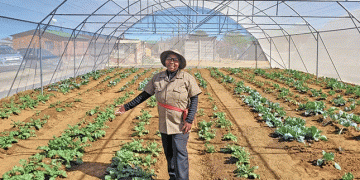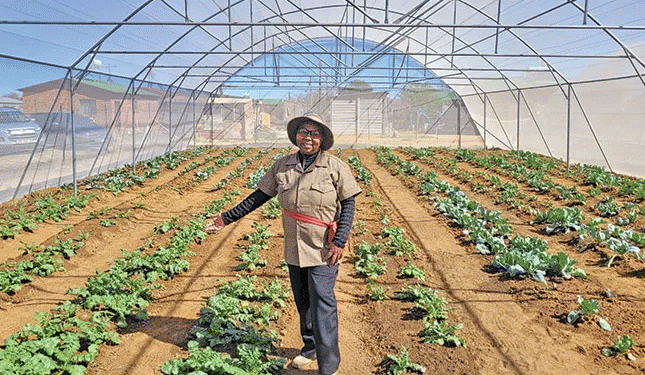In Welkom, Free State, Mathabang Lekhula-Legula has achieved what many would deem impossible: converting a 0.5-hectare illegal dumping ground into a thriving, productive vegetable farm. Where piles of waste once obscured neighboring houses, neat rows of spinach, cabbage, and onions now grow. This remarkable transformation is a powerful testament to the potential of strategic partnerships in supporting agricultural producers, particularly in challenging environments.
The project demonstrates that the primary barriers to agricultural production are not always the quality of the land itself, but often the lack of initial support, resources, and knowledge. By clearing the waste and rehabilitating the soil, Lekhula-Legula has effectively created new agricultural capital from a liability. This aligns with a growing global focus on urban and peri-urban agriculture as a means to enhance local food security. According to the Food and Agriculture Organization of the United Nations (FAO), integrating agriculture into city landscapes can shorten supply chains and improve access to fresh produce, but success hinges on addressing soil contamination and securing land tenure—challenges directly confronted in this initiative.
While the scale is small, the principles are scalable. The success of this 0.5-hectare plot underscores the viability of land reclamation for food production. A 2023 report from the World Resources Institute emphasized that restoring degraded lands is a critical strategy for meeting future food demands without further encroaching on natural ecosystems. This case study in Welkom provides a tangible, community-level example of this principle in action, proving that with the right backing, even the most neglected spaces can contribute to food systems.
Mathabang Lekhula-Legula’s farm is more than a source of fresh vegetables; it is a beacon of innovation and resilience. It proves that agricultural success is driven not just by soil quality, but by the quality of support systems surrounding a farmer. This model of partnership-driven land reclamation offers a valuable blueprint for municipalities, agricultural development agencies, and community groups looking to combat land degradation, improve local food sovereignty, and empower small-scale producers. The key takeaway is that with targeted intervention, waste can indeed be turned into wealth.































